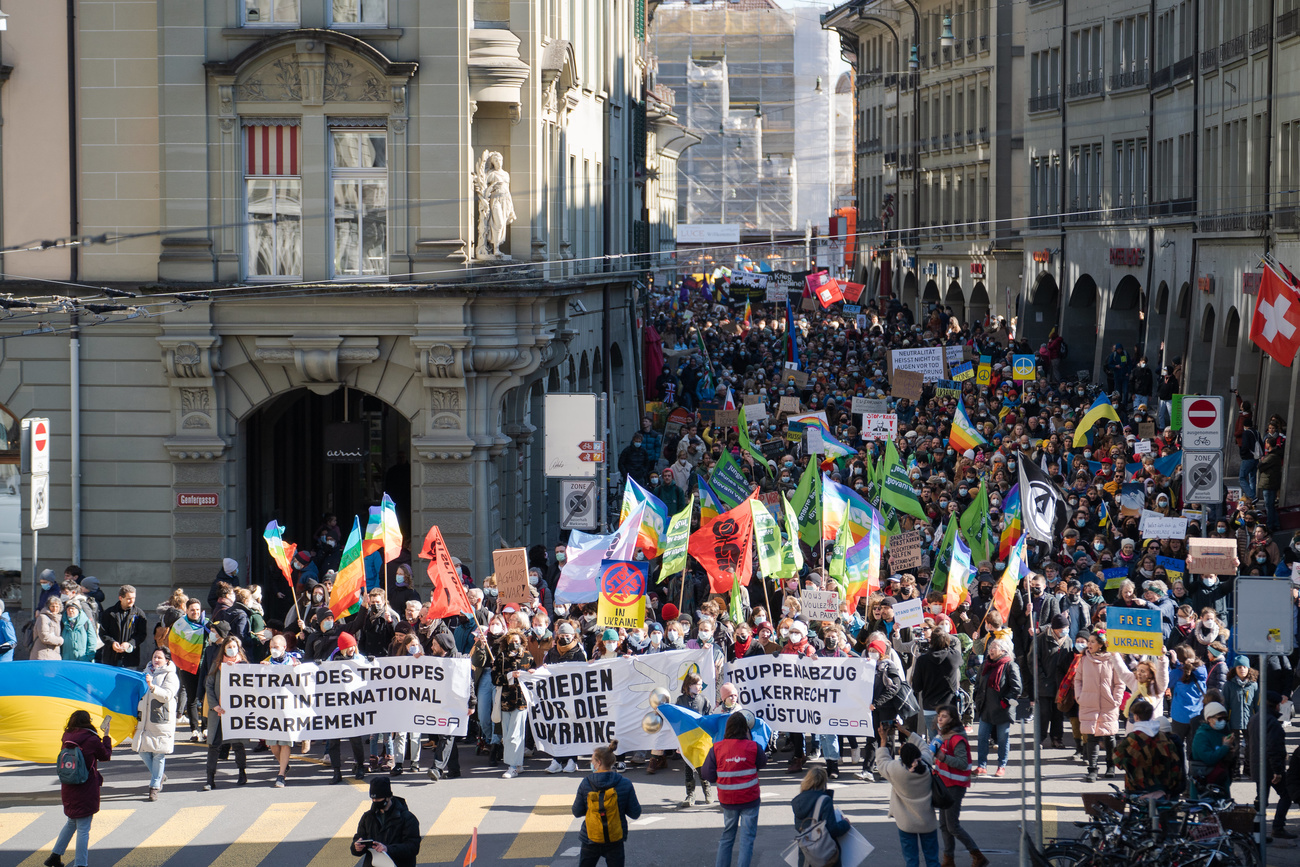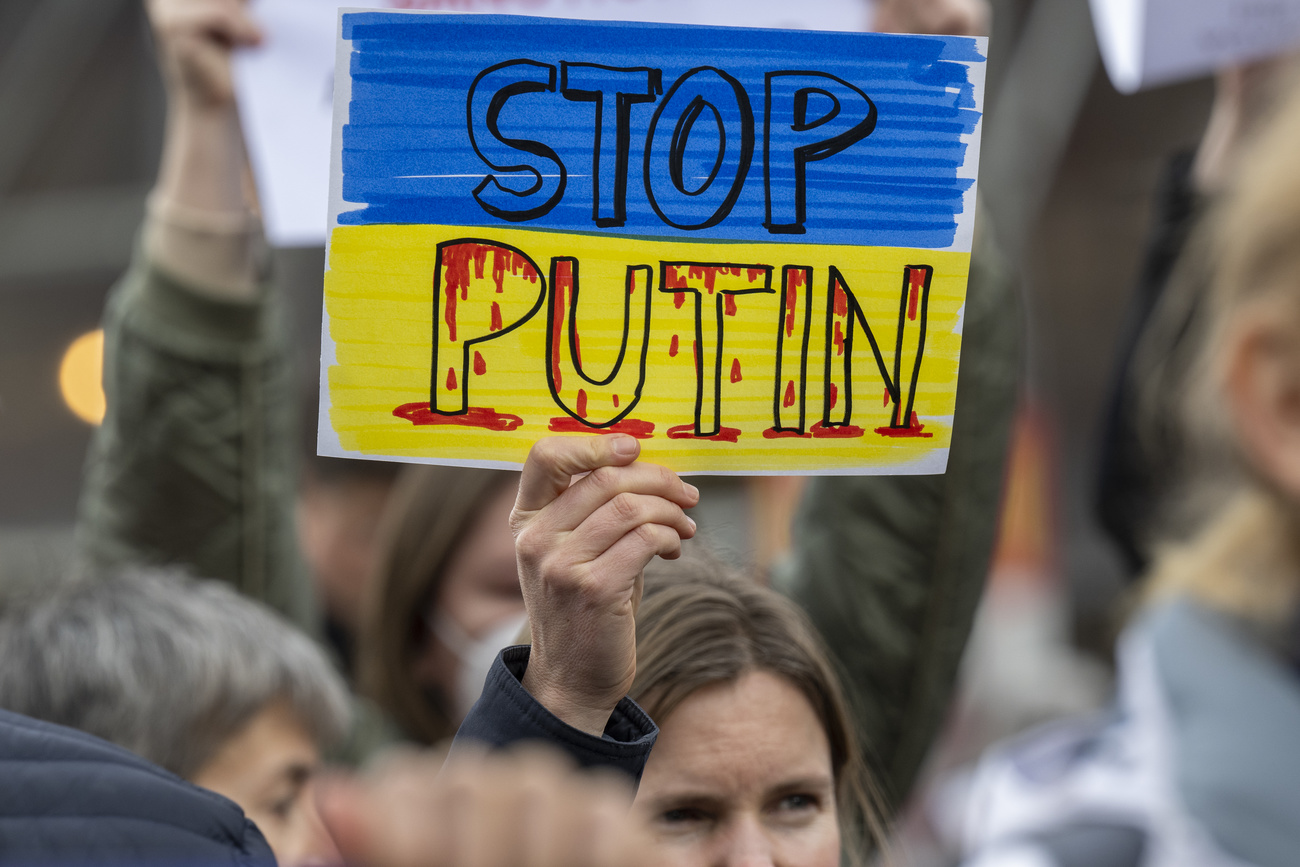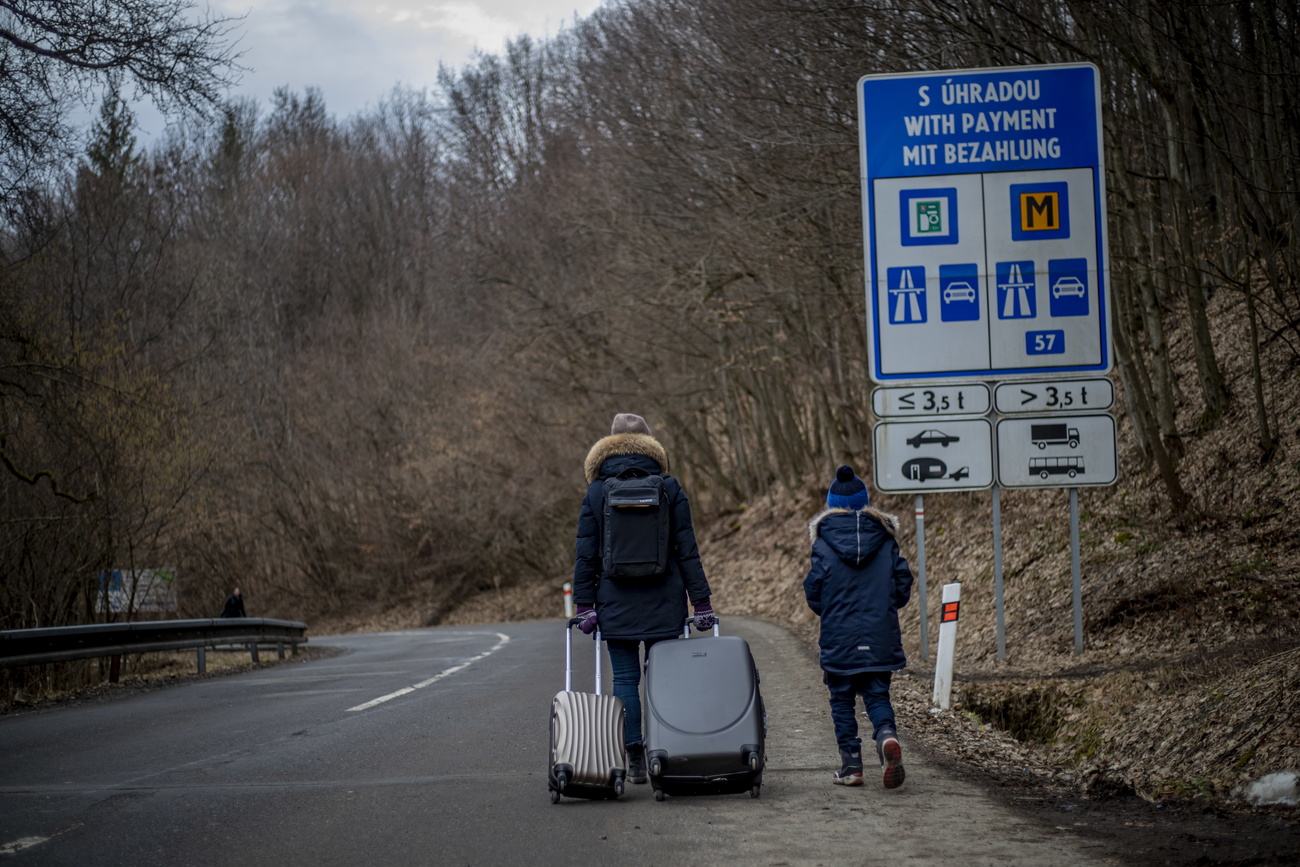
Ukraine: Up to 20,000 people march in Bern for peace

Between 10,000 and 20,000 people have demonstrated in Bern against Russia’s invasion of Ukraine. The motto of the rally was “Peace for Ukraine and all of Europe”.
Saturday’s authorised demonstration was called by a broad alliance of movements, organisations and parties. They estimated the number of participants at around 20,000, according to a spokesperson.
The meeting place near Bern railway station filled up quickly at noon. Traffic came to a standstill at times. Young and old from both Switzerland and Ukraine took to the streets.
Peace flags and Ukraine flags dominated the scene. There was applause for speakers who, among other things, shouted “No to Putin’s war, no to all wars” and demanded “not one franc to the aggressor”.
The crowd jeered and whistled the Swiss government, which speakers said did not want to fully support the EU sanctions.
On Thursday the government announced it would adopt the same EU travel bans for 367 named Russian individuals and companies. But it stopped short of freezing financial assets, saying it would instead stop Swiss banks from accepting any more money from those on the sanctions list.

More
Switzerland faces pressure to toughen sanctions on Russia
After a minute’s silence, the demonstrators set off on a march through the city centre.
Demonstrations against the violence in Ukraine were also announced on Saturday elsewhere in Switzerland. Around 2,000 people gathered in Basel, according to police estimates, and several hundred were at the Place des Nations in Geneva. Demonstrations were also expected in Bellinzona and Lucerne.
Spontaneous rallies had already taken place in several Swiss cities on Thursday.
Cities being pounded
On Saturday Russian forces pounded Ukrainian cities with artillery and cruise missiles for a third day running, but a defiant President Volodymyr Zelensky said the capital Kyiv remained in Ukrainian hands.
The infrastructure of the Swiss embassy in Kyiv was intact on Saturday, the foreign ministry said. The embassy was able to continue with reduced activities, with a transfer of staff or closure not on the agenda for the time being.
As hundreds of thousands of Ukrainians fled westwards towards the European Union, top Russian security official and ex-president Dmitry Medvedev said Moscow’s military operations would be waged relentlessly until their goals were achieved.
Ignoring weeks of Western warnings, President Vladimir Putin launched a three-pronged invasion of Ukraine on Thursday, saying the “neo-Nazis” in power in Kyiv threatened Russia’s security.
At least 198 Ukrainians, including three children, have been killed and 1,115 people wounded so far in Russia’s invasion, Interfax quoted Ukraine’s health ministry as saying. It was unclear whether the numbers comprised only civilian casualties.

More
Up to 2,000 Ukrainians could seek refuge in Switzerland

In compliance with the JTI standards
More: SWI swissinfo.ch certified by the Journalism Trust Initiative




























You can find an overview of ongoing debates with our journalists here . Please join us!
If you want to start a conversation about a topic raised in this article or want to report factual errors, email us at english@swissinfo.ch.